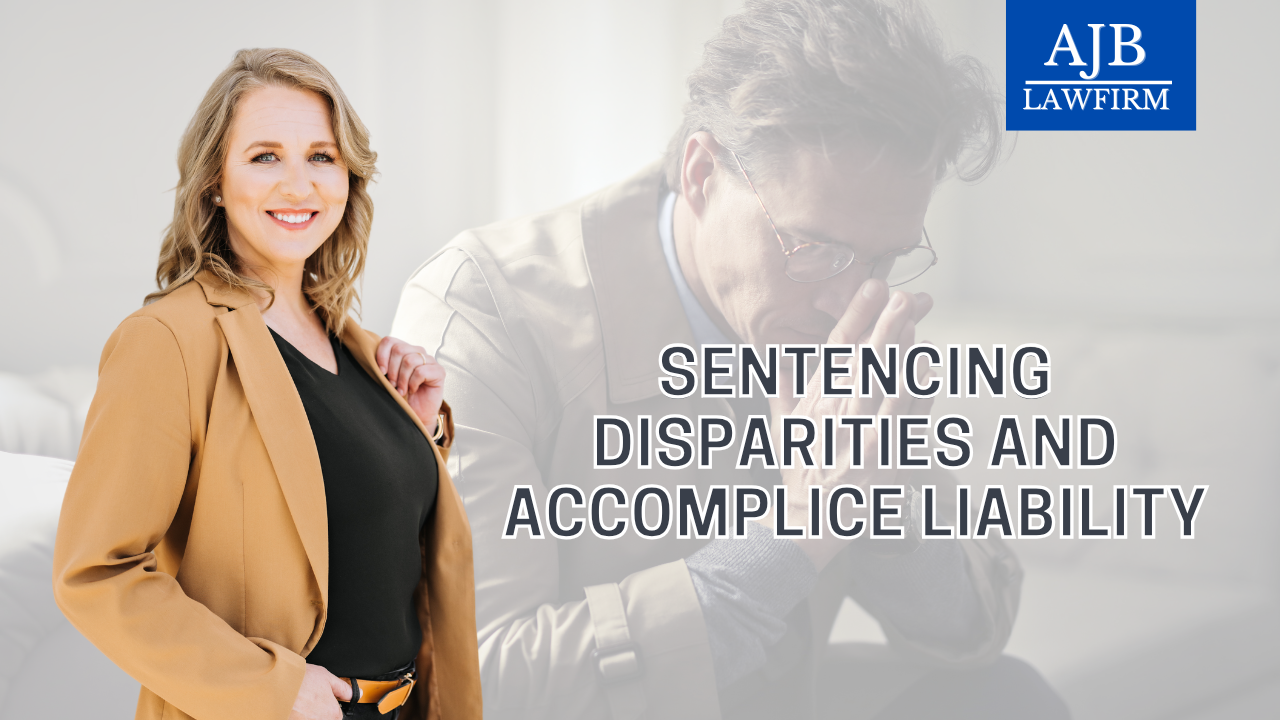Understanding Sentencing Disparities: Why Accomplices May Deserve Leniency
In criminal law, the concept of accomplice liability often raises complex questions about who should be held accountable for a crime and to what degree. At AJB Law Firm in Tucson, Arizona, under the experienced guidance of attorney Amanda Bynum, we believe that every client deserves a fair and just defense. In this blog post, we delve into the topic of sentencing disparities between primary perpetrators and accomplices, shedding light on why accomplices may deserve more lenient sentences in certain cases.
The Role of an Accomplice:
In many criminal cases, particularly those involving serious offenses, it's common to see multiple individuals involved. Among them, there are primary perpetrators who directly commit the crime, and accomplices who play supporting roles. Understanding the nuances of these roles is crucial when considering sentencing.
Limited Role and Responsibility:
Accomplices typically have a more limited role in the commission of a crime. Their actions may be less central to the criminal act compared to the primary perpetrator. This disparity in roles and responsibilities is an essential factor when evaluating the level of culpability.
Coercion and Pressure:
Accomplices are sometimes coerced, pressured, or even threatened into participating in criminal activities by the primary perpetrator. This coercion can diminish their moral and legal culpability, as they may have felt they had no other choice.
The Importance of Fair Sentencing:
Fairness is a cornerstone of the criminal justice system, and it's vital to ensure that sentences are proportionate to an individual's level of involvement and culpability. Here are key points to consider when arguing for leniency in sentencing for accomplices:
Remorse and Cooperation:
Many accomplices genuinely regret their involvement in a crime. They may be willing to cooperate with law enforcement or the prosecution, providing valuable information or testimony that helps bring the primary perpetrator to justice. Acknowledging this willingness to cooperate can be a powerful argument for leniency.
Lack of a Criminal Record:
If the accomplice has no prior criminal record or a limited history of involvement in criminal activities, this can be a compelling factor when advocating for leniency. It suggests that the individual is not a habitual offender and is less likely to reoffend in the future.
Negative Impact on the Accomplice's Life:
The consequences of involvement in a criminal activity often extend beyond the legal realm. Accomplices may face damage to their reputation, strained relationships, and difficulties in finding employment. These negative impacts can be emphasized to demonstrate that the individual has already suffered significant consequences.
Mitigating Circumstances:
Consideration of the individual's age, mental health, personal history, or other relevant factors can help build a case for leniency. These factors may shed light on the circumstances that led to their involvement in the crime.
Rehabilitation and Treatment:
Proposing a comprehensive sentencing plan that includes rehabilitation and treatment options is a proactive approach to addressing the root causes of the individual's involvement in criminal activity. This demonstrates a commitment to personal growth and positive change.
Public Interest:
A more lenient sentence for an accomplice can serve the broader public interest. It allows resources to be redirected toward more serious offenders while facilitating the reintegration of the accomplice into society as a law-abiding citizen.
Conclusion:
In the complex world of criminal law, fairness in sentencing is paramount. Accomplices, by their very nature, often occupy a different position in the hierarchy of criminal culpability than primary perpetrators. The dedicated legal team at AJB Law Firm, led by attorney Amanda Bynum, understands the importance of crafting a compelling argument for leniency that takes into account the unique circumstances of each case.
If you or your loved one is facing criminal charges as an accomplice in Tucson, Arizona, reach out to us at AJB Law Firm. We are committed to providing the best possible defense and ensuring that justice is served, while also recognizing the potential for rehabilitation and a brighter future for those accused of crimes. Your story matters, and we are here to help you navigate the complexities of the legal system with compassion and expertise. Contact us today to schedule a consultation.
